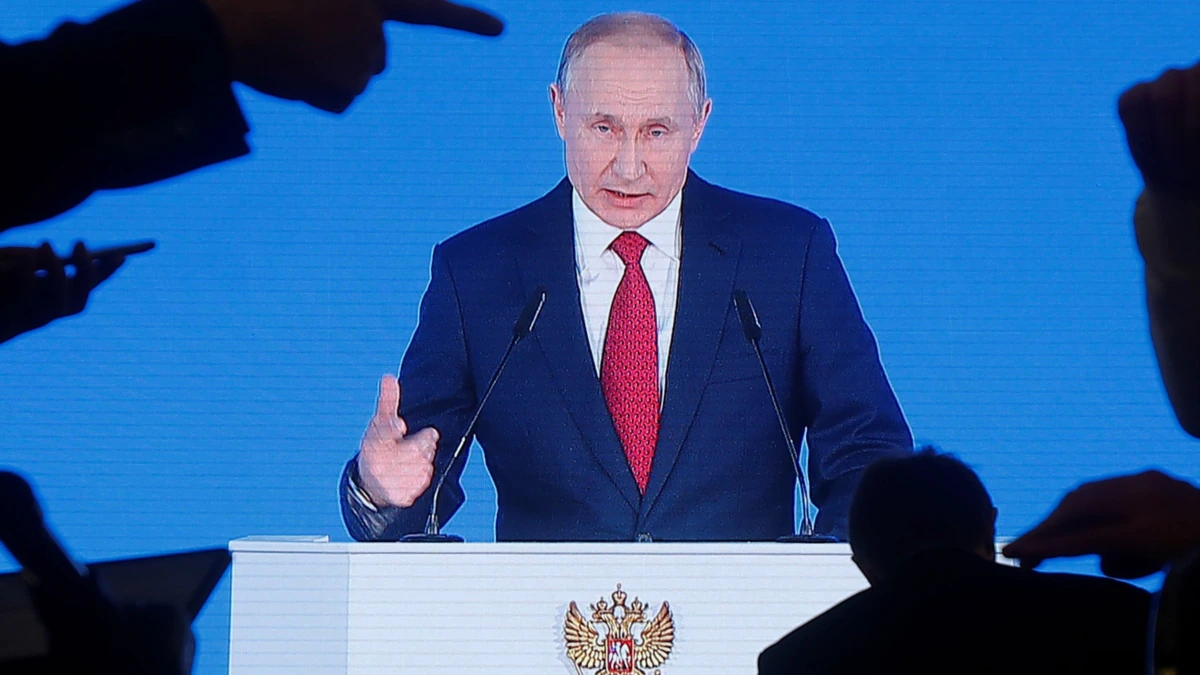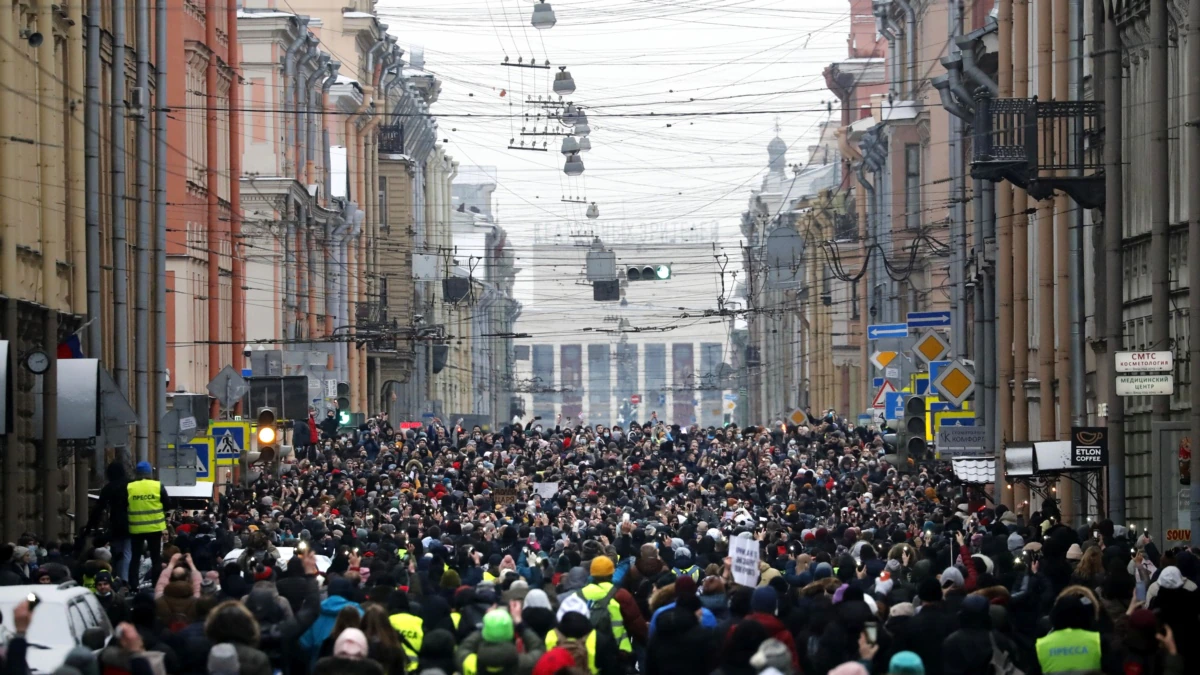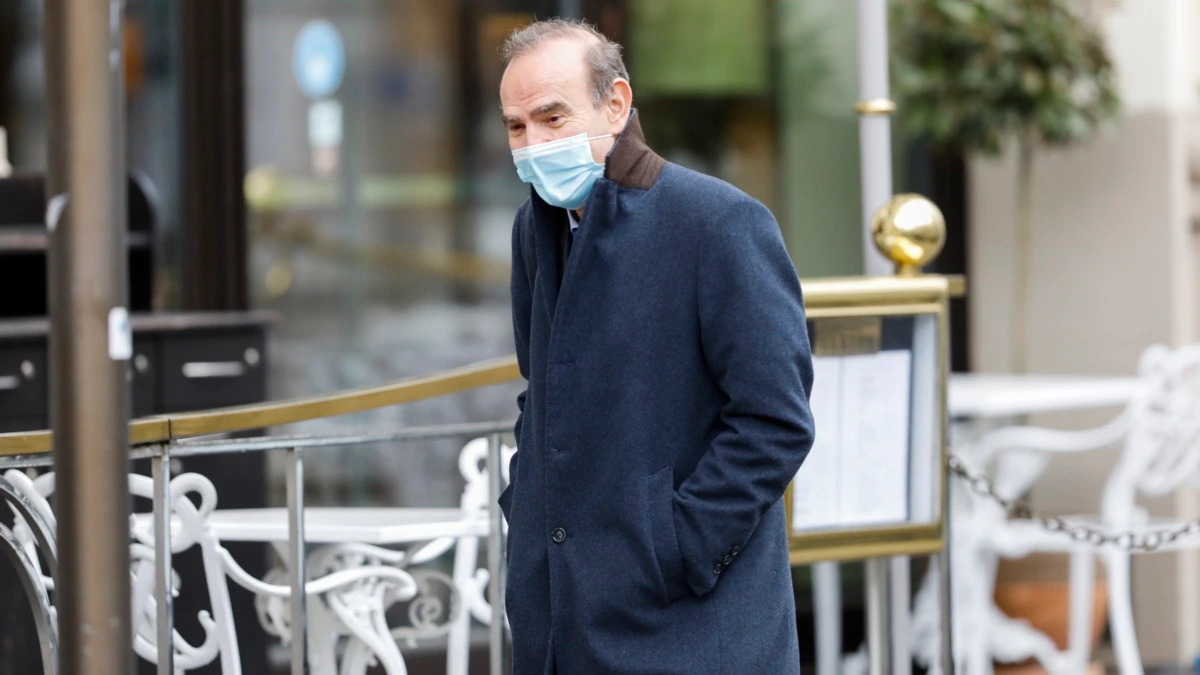President Vladimir Putin thundered about Russia’s “red lines” in warnings aimed westward, extolled the virtues of parenthood, elaborately hailed the country’s response to the COVID-19 pandemic, and called for cash support for citizens struggling with stagnant incomes.
His April 21 state-of-the-nation address came at a precarious moment: Putin now has the right to seek to remain president until 2036, but basement ratings for the ruling party could pose trouble in a September parliamentary vote. More Russian troops are deployed on the border with eastern Ukraine than at any time since 2014, and the plight of imprisoned Kremlin foe Aleksei Navalny is one of many factors drawing the opprobrium of the West.
Here are five takeaways from the annual address.
Clouded COVID Claims
Putin opened his 17th state-of-the-nation address with a long section on the global coronavirus pandemic and Russia’s handling of the crisis that erupted in 2020. And although he admitted that it was a trying experience confronting “a new, previously unknown, and extremely dangerous infection,” his description of Russia’s response was uniformly upbeat.
Addressing a high-level audience seated at close quarters, many of the officials without masks, he used praise for the response to paint a picture of a united country working together with few flaws, asserting that “citizens, society, and the state acted responsibly and in unison,” adding, “Everyone worked quickly, efficiently, and conscientiously.”
His account did not include any somber notes. He did not mention medical workers who were unable to collect promised hazard pay or rural residents who were poorly served by a medical system that had been trimmed back in recent years under the government’s “optimization” program.
Putin did not mention the 106,706 Russians who the government’s COVID-19 task force says have died of the illness — or the far larger numbers of deaths indicated by the state statistics committee and other estimates. According to The New York Times, “at least 300,000 more people died last year during the coronavirus pandemic than were reported in Russia’s most widely cited official statistics.” That would be an excess mortality greater than what was reported by the United States and most European countries.
Putin said that the pandemic had been a “sad and disappointing” setback to government efforts to overcome Russia’s demographic crisis. But he stressed that the government’s goal of increasing life expectancy to 78 years by 2030 remained within reach.
As he has when talking about challenges in the past, Putin stressed the politically useful theme of “solidarity.”
“Throughout our history, our people have come out victorious and overcome trials thanks to unity,” he said. “Today, family, friendship, mutual assistance, graciousness, and unity have come to the fore as well.”
Domestic Pandering?
About two-thirds of the way through the speech, Putin made his only specific mention of the upcoming elections to the State Duma, the lower house of parliament, which must be held by September 19. And he connected the reference to the thread of “unity” that ran through the entire 80-minute speech.
“I want to thank all the constructive forces in the country for their responsible and patriotic stance in the complicated period of the pandemic,” he said. “This enabled us together — and was very important; not just empty words, but patriotically significant — to ensure the strength and stability of the state and political system of Russia. This is always important, but particularly in the period of preparation for the elections to the State Duma and other organs of government,” he said, adding that Russians should take “a stance that unites us around the common tasks that remain.”
But the lion’s share of his speech was devoted to domestic issues, and he handed out a raft of short-term promises targeting issues that concern average Russians like inflation, poverty, bad roads, and access to health care and schools. It was hard not to take the pledges as a bid to shore up sagging support for the ruling United Russia party, whose popularity took a serious hit when in 2018 it pushed through an unpopular measure to raise retirement ages.
Putin promised a complete program “of measures to support families with children” to be rolled out by July 1. By the same date, he promised new subsidies for children in single-parent homes. By the middle of August he promised a 10,000-ruble ($130) payment to all schoolchildren to help them get ready for school.
He spoke of new schools for “a million children,” new school buses to take them there, new roads for those buses, and other goals that he said would be reached by 2024 — the year he will run for reelection if he chooses to do so. And he endorsed and credited by name a United Russia proposal under which all homes will be connected to natural gas for free, a goal that has existed since the Soviet era.
In short, the speech gave a lot of campaign sound bites for ruling party candidates to use to persuade voters to stick with the devil they know.
What Prisoner? What Protests?
Putin did not directly address the elephant in the room, or outside the room: the plight of his most prominent foe, jailed opposition leader Aleksei Navalny, and the protests Russians nationwide were trying to hold in more than 100 cities to call for his release amid concerns that his health has considerably declined three weeks into a hunger strike.
By making no direct mention of Navalny or the protests, Putin may have been trying to show Russians and the West that he is not afraid of the anti-corruption activist — even as the state considers labeling his organizations “extremist” — and convey the idea Navalny and his backers are not an important part of Russia’s future, not one of the “constructive forces.”
But that didn’t mean the authorities were not paying attention.
As Putin spoke, footage on social media showed protesters being roughly detained in the Far East, and the human rights monitoring group OVD-Info was tracking the rising number and locations of arrested demonstrators nationwide.
Navalny’s team, which has said that protests are the “only thing that Putin responds to,” originally planned to launch spring demonstrations with an eye on ramping up pressure on the Kremlin in the run-up to the Duma elections.
The calendar was moved up to coincide with Putin’s speech after Navalny spokeswoman Kira Yarmysh said that he “could die any minute” and that demonstrations were now “no longer Navalny’s chance for freedom, but a condition for his life.”
By the end of Putin’s speech, Yarmysh and other members of Navalny’s team were among the names of detained demonstrators rolling in.
If Putin heard rising calls both inside and outside Russia to humanely address Navalny’s situation, he responded only obliquely, saying that “the organizers of any provocations that threaten the fundamental interests of our security will regret what they have done in the way that they have not regretted anything for a long time” — words that appeared to be aimed at Kyiv, Brussels, and Washington but also at Navalny and his supporters.
Keep The West Guessing
For years, foreign policy under Putin has been an exercise in past glory and future greatness. Going back at least to the 2008 war in Georgia, the Kremlin has made upgrading and modernizing the country’s armed forces a priority. And a more muscular foreign policy reflects that: the 2014 blitzkrieg seizure of Ukraine’s Crimea; the 2015 deployment of regular forces to Syria; the deployment of irregular forces to Libya; and the entire ongoing operation in eastern Ukraine.
The buildup of forces along the borders of eastern Ukraine in recent weeks has turned into, according to Western officials, the biggest such Russian deployment since 2014.
NATO, the European Union, and the United States have noticed, and have warned Moscow publicly and privately not to do anything rash. President Joe Biden’s administration has even slapped two sets of sanctions on Russia since he took office in January — and signaled more were teed up and ready to go.
Many Western capitals have also spoken out about Navalny — not just his jailing but also the conclusions that last summer he was targeted with a nerve agent that almost killed him while traveling in Siberia. Navalny blames Putin for his poisoning, and mounting evidence suggests it was carried out by the Federal Security Service (FSB).
Moscow has portrayed its military moves as defensive and painted Kyiv and the West as potential aggressors. In that key, Putin used the more bombastic part of his speech to signal to the United States and NATO that Russia would not be afraid to use its military capabilities to punch back if provoked.
“We want good relations…and we really don’t want to burn bridges,” Putin said. “But if someone mistakes our good intentions for indifference or weakness and intends to burn down or even blow up these bridges, they should know that Russia’s response will be asymmetrical, swift, and harsh,” he said.
“I hope that nobody would decide to cross the so-called red line in relations with Russia, and we will define those [red lines] on our own in every individual case,” he said. Analysts suggest the remark was meant to hobble Western responses to Russia’s actions by leaving them guessing about where the red lines lie.
No Bombshells For Now
Given the recent troop buildup, the tough rhetoric, and the warnings from Washington and Brussels, many Russia watchers had suspected there might be a major announcement of some sort coming from Putin in the address.
Formally recognizing the Russian-armed-and-funded separatist administrations in the eastern Ukrainian regions of Donetsk and Luhansk? Announcing a long-discussed-but-never-consummated union of Russia with Belarus? Putin running for reelection in 2024? A retort, or response, to Biden’s invitation to hold a one-on-one summit in the coming months?
None of those things happened in the speech.
Putin did take a moment to rehash Russia’s long-standing narrative of the events that rocked Ukraine in 2013-14, when months of streets protests ended in bloodshed and pushed Moscow-friendly President Viktor Yanukovych from power. As he has before, Putin inaccurately labeled the events a “state coup.”
He also suggested a parallel with the situation in neighboring Belarus, where last August longtime leader Alyaksandr Lukashenka claimed reelection victory but opponents cried foul and citizens poured into the streets for unprecedented protests. Lukashenka has refused to budge, cracking down hard and embracing the Kremlin tighter as Western criticism mounts.
In his speech, Putin reiterated a claim that Lukashenka made without evidence over the weekend — that there had been a botched coup attempt in Belarus.
“The practice of organizing coups and planning political assassinations of top officials goes over the top and crosses all boundaries,” said Putin, who also provided no evidence. The comments kept speculation about a big announcement involving Russia and Belarus alive ahead of a meeting between Putin and Lukashenka in Moscow on April 22.
This post was originally published on Radio Free.



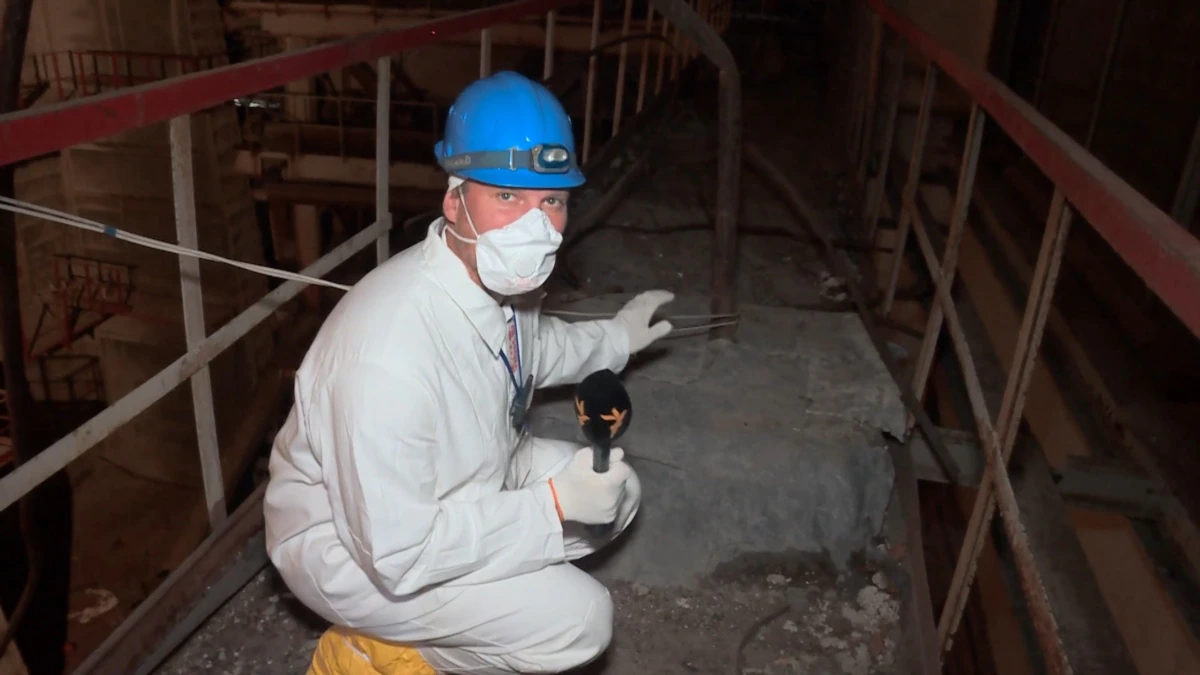
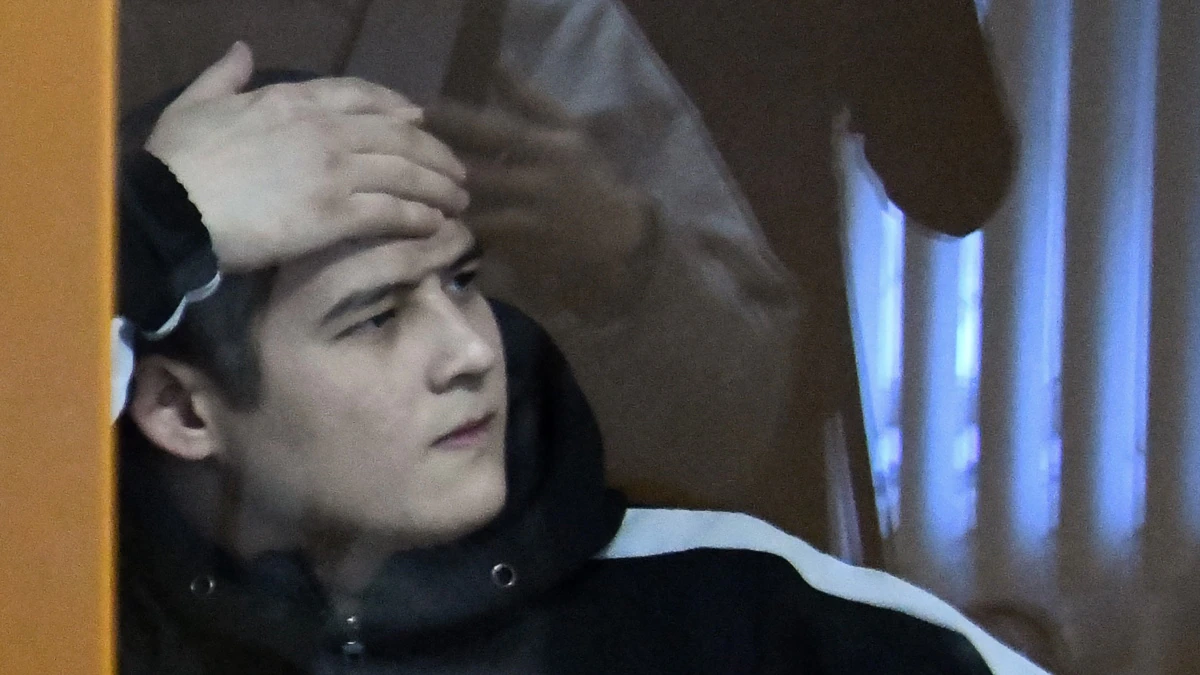

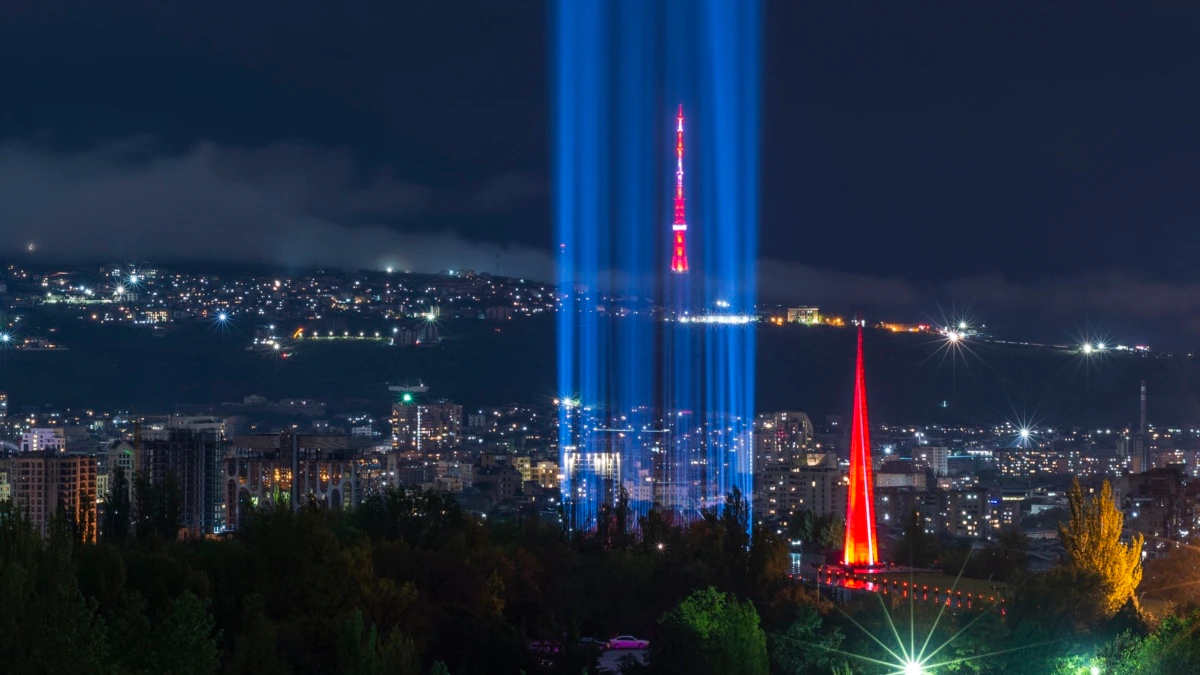
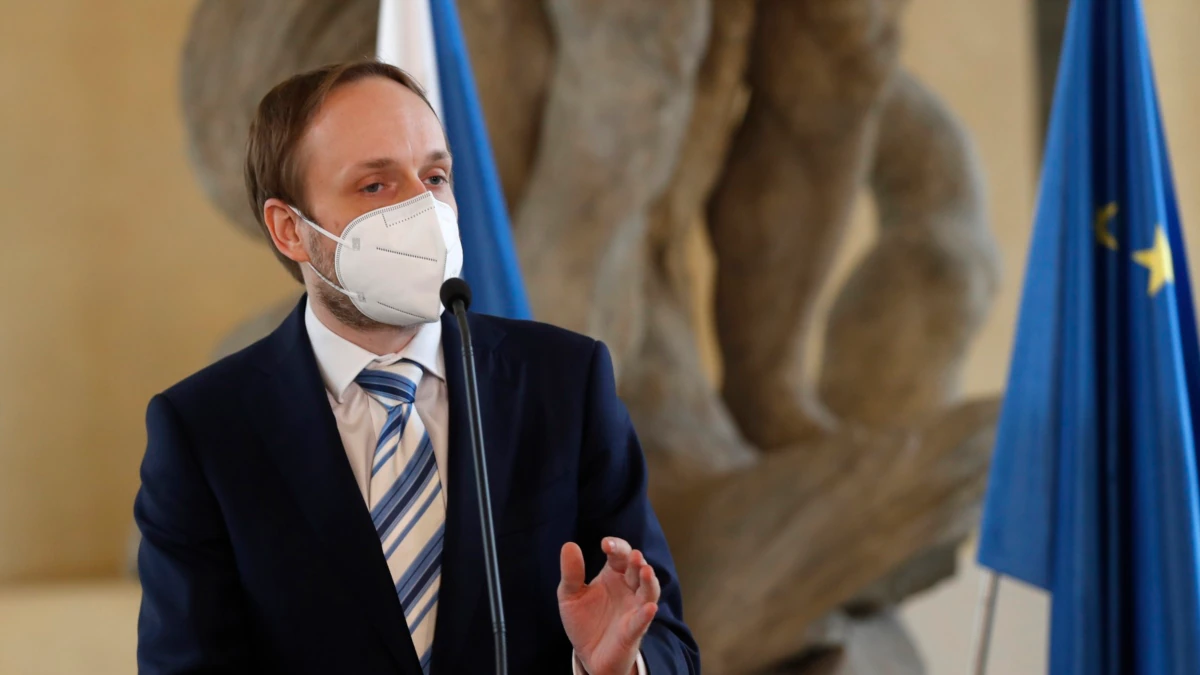
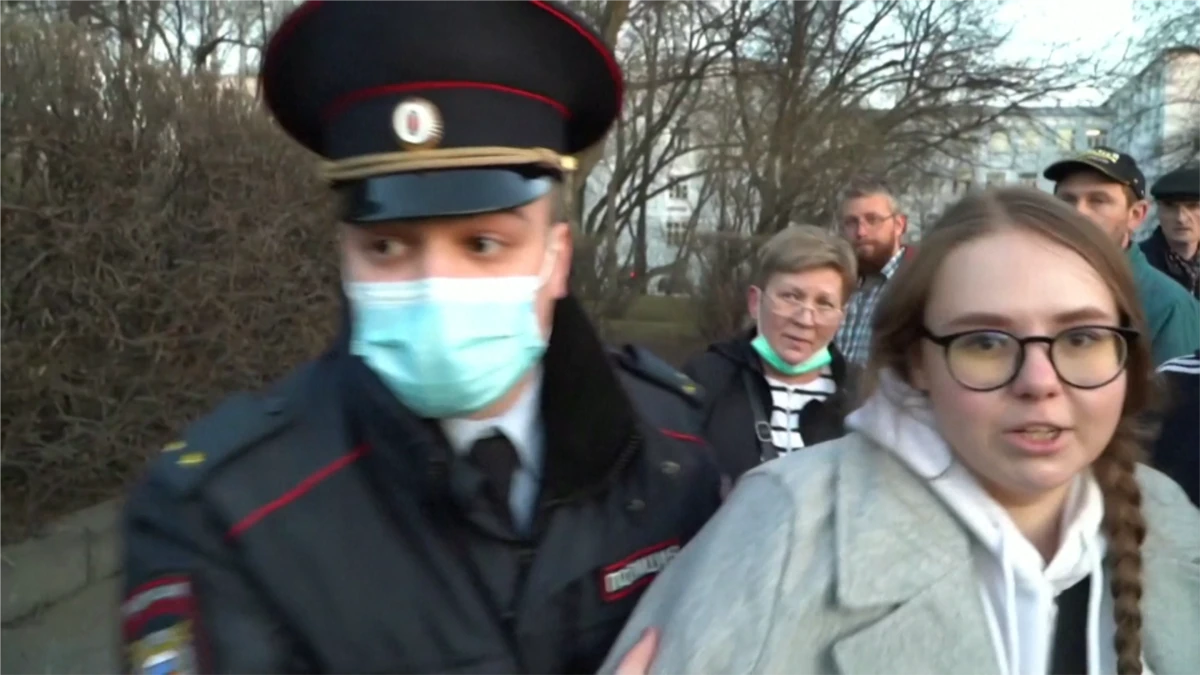


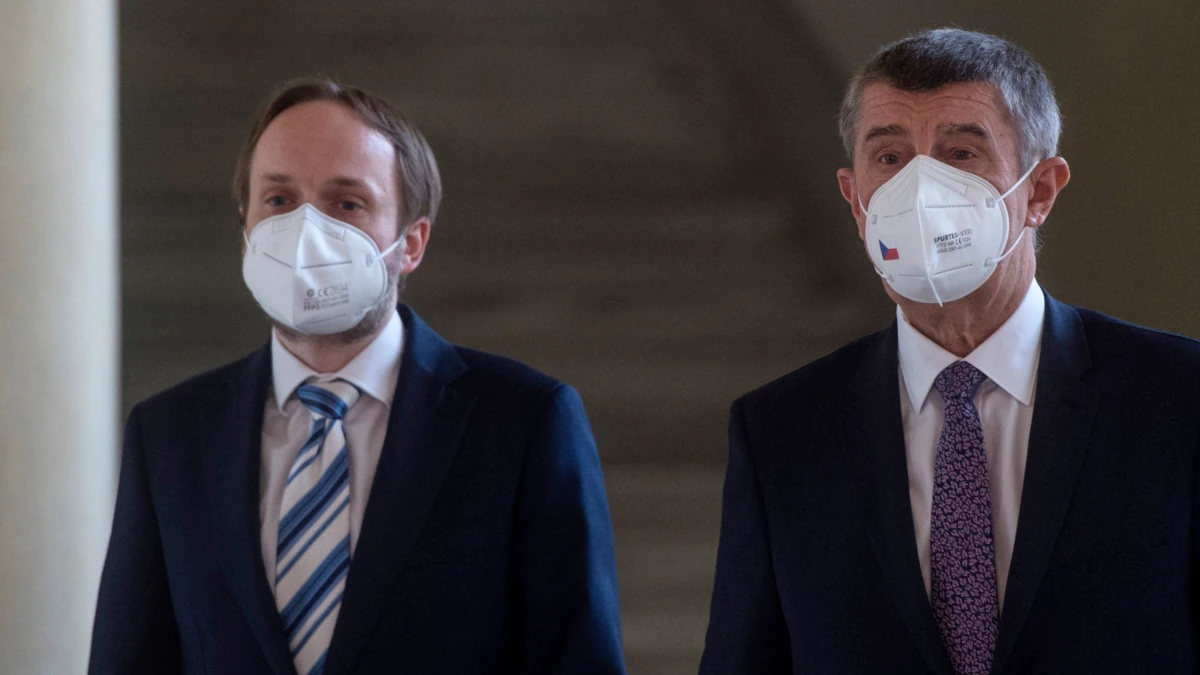



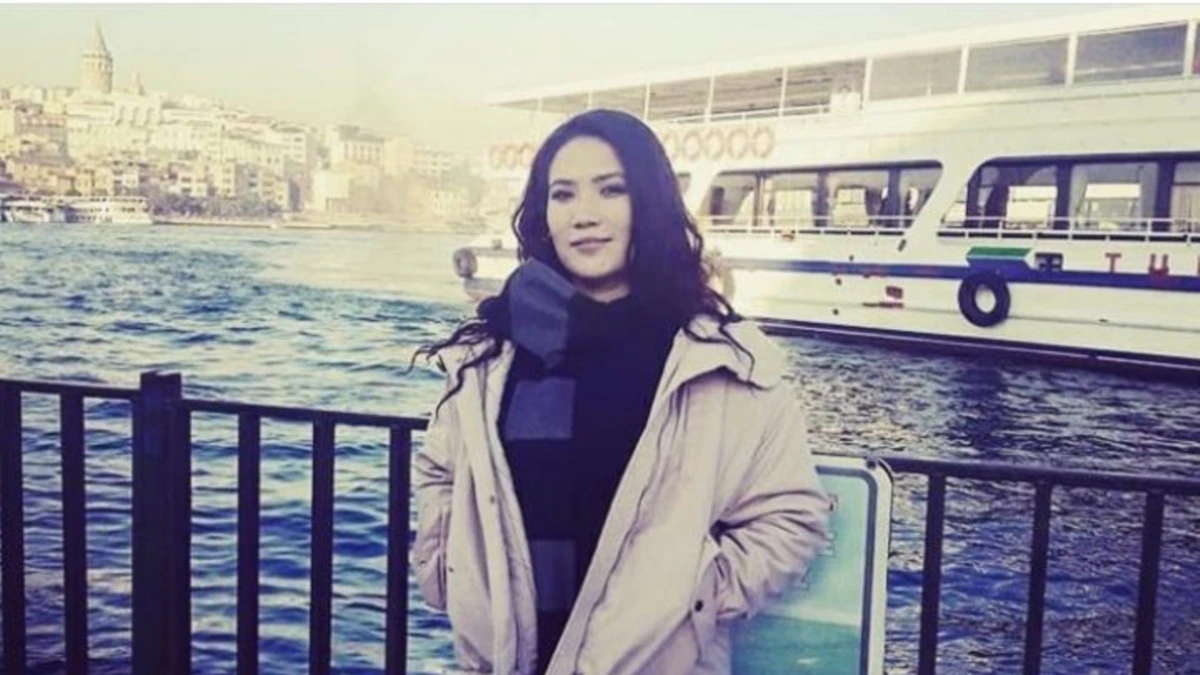

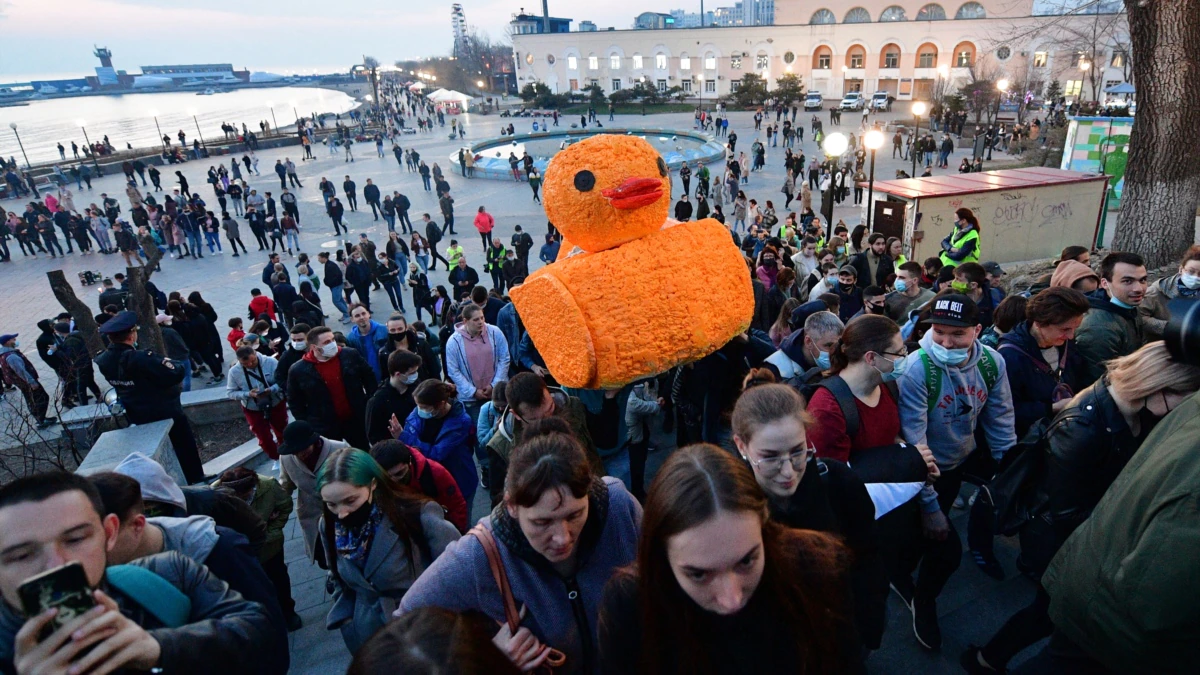

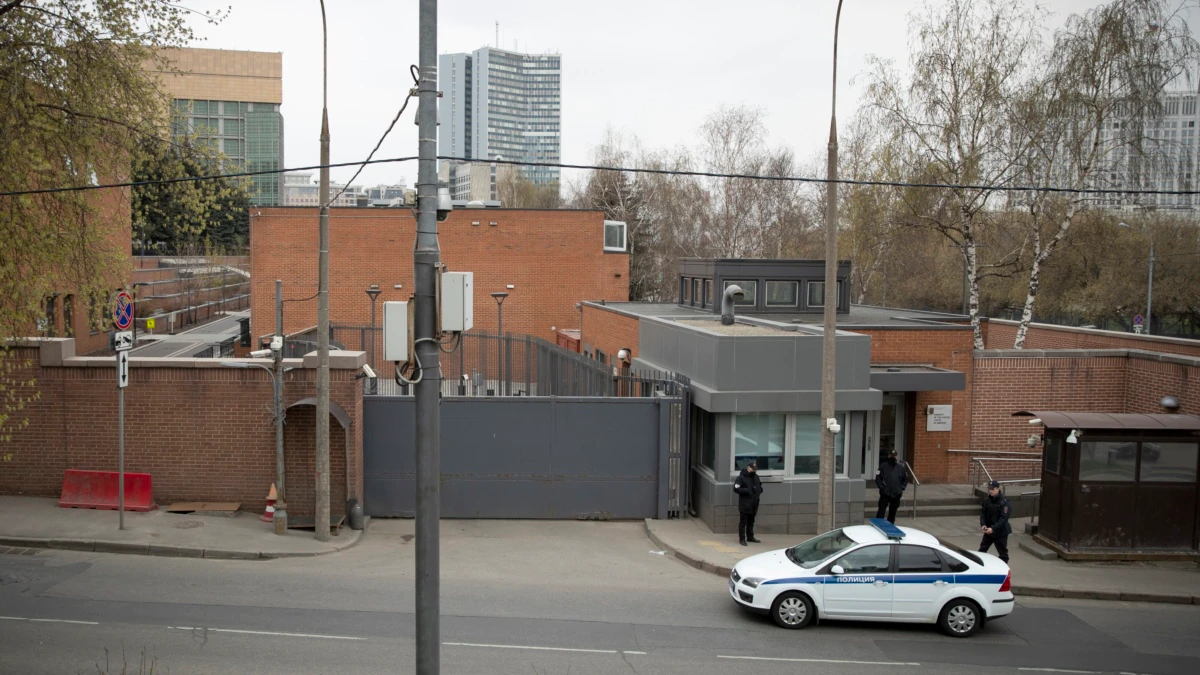


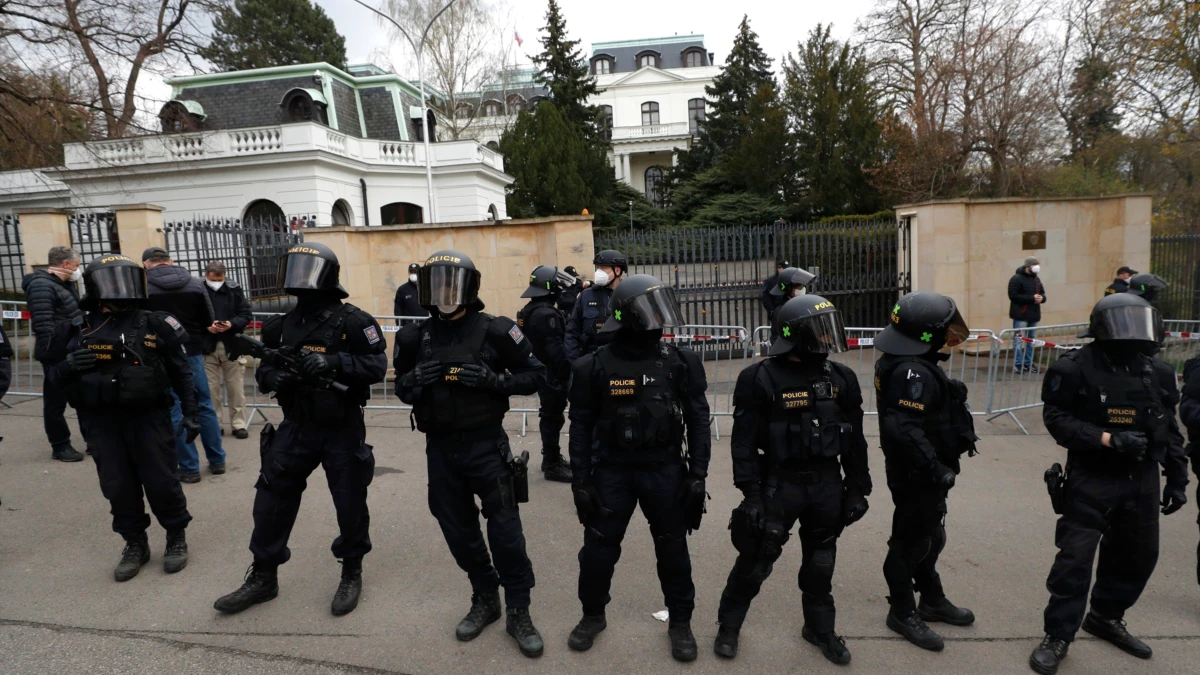

![Ragmi Mustafi, president of the Serbian-based Albanian National Council: "There are dangerous statements coming from Belgrade in which [ethnic] Albanians are always enemies of the state."](https://gdb.rferl.org/598bcc1c-7cdb-49d5-a7f3-a507c09f2bda_w250_r0_s.jpg)



